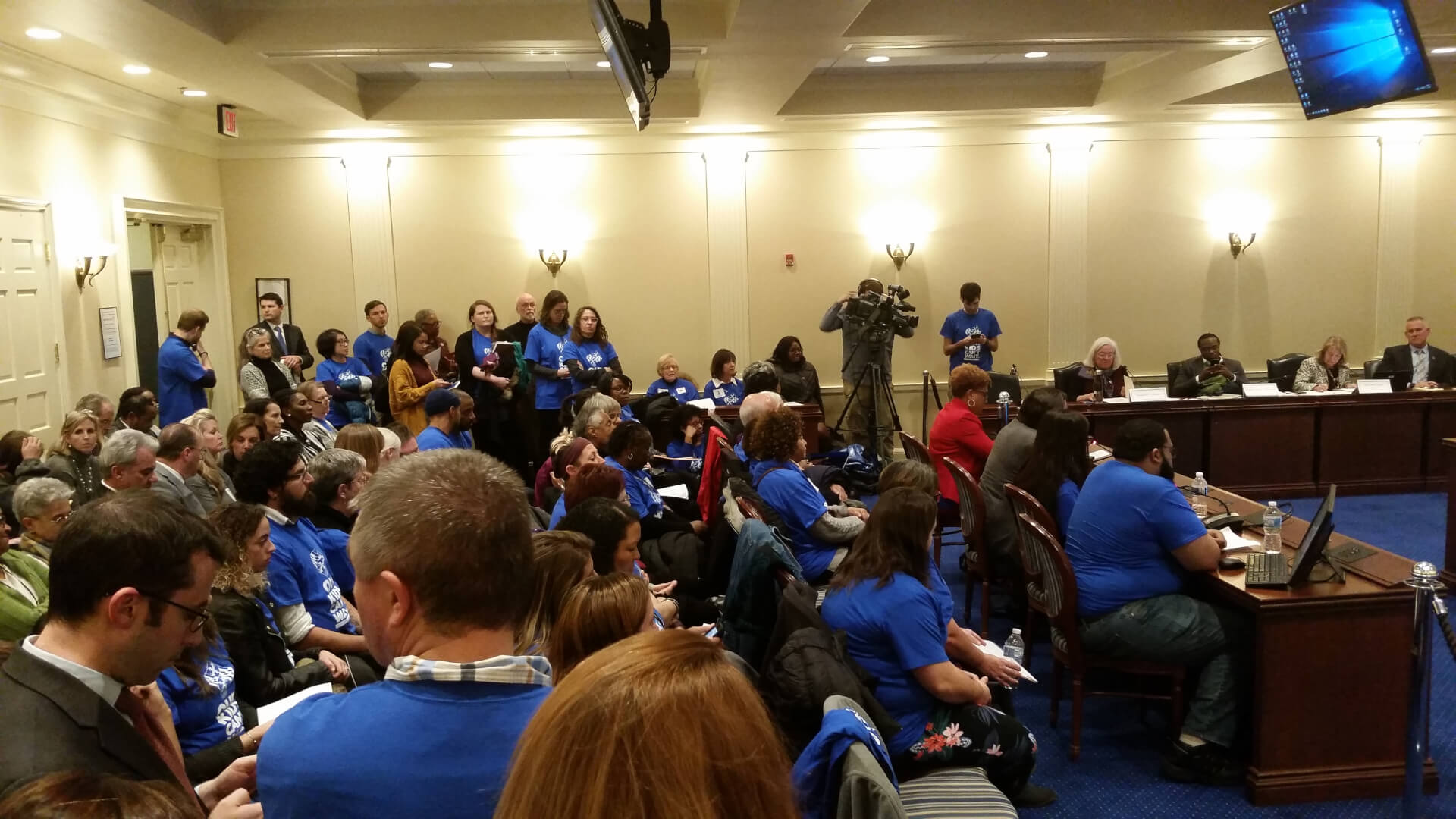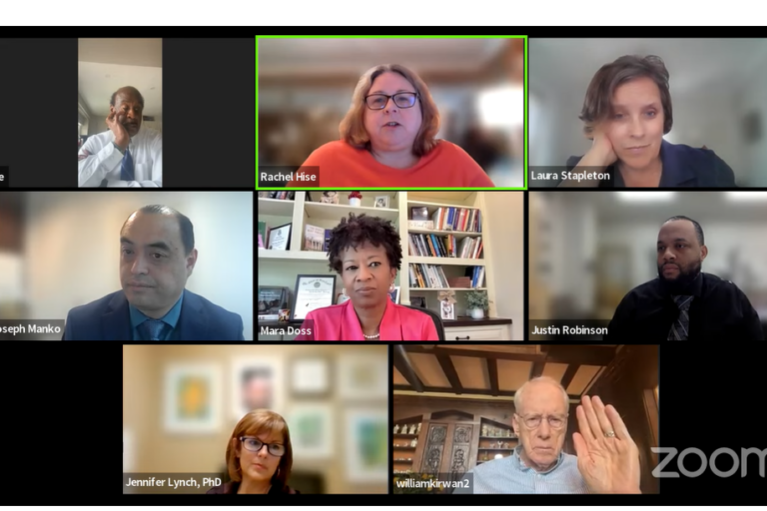Blue Wave of Affection Washes Over Kirwan Panel (But Challenges Remain)

If ever the members of the Commission on Innovation and Excellence in Education, many of whom had spent three years slogging through endless meetings, funding fights, internecine warfare and gubernatorial insults, needed validation, they surely got it Tuesday night in Annapolis.
Hundreds of people crowded into the final public hearing for the so-called Kirwan Commission, many clad in blue T-shirts, calling the plan the panel has devised for reforming the state’s public education system “transformative,” “critical to the future of the state,” “this historic opportunity,” “a moral imperative,” and “a call to action for the building of a world-class education system.”
But the Kirwan Commission’s work isn’t quite done yet: Commissioners must vote on the final package before the end of the month, including controversial proposals for finding and funding the extra $31 billion in spending that the reforms demand. Then the equally hard work of muscling the proposal next year through the General Assembly, while Gov. Lawrence J. Hogan Jr. (R) warns of the reforms’ burden on taxpayers, begins.
The commission, led by former University System of Maryland chancellor William E. “Brit” Kirwan, proposes to increase teachers’ salaries and licensing requirements, expand pre-kindergarten programs, and provide more funding for high-poverty school districts.
But the price tag for the reforms is high — hitting an extra $3.8 billion a year over the course of a decade — and local governments in particular are worried about their ability to meet their mandated share and wonder whether being asked to do so is fair.
“How does it advance the goals of equity to ask the most of those who are able to pay the least?” Caroline County Schools Superintendent Patricia Saelens asked the panel during Tuesday night’s hearing.
Even so, most of the comments, delivered by teachers, students, school administrators, parents, children’s advocacy organizations, community groups, progressive think tanks, the ACLU, and an array of others, were positive. The overall message: the reforms are necessary to create a world-class education system, and the investments are worth it.
“Children may make up 20% of our population, but they make up 100% of our future,” said Jack Smith, the Montgomery County schools superintendent.
But despite all the praise, Kirwan Commission members are lurching toward the finish line, and before the public hearing even began they had met for six hours Tuesday. The strain was evident.
Tempers flared when officials from the Maryland State Department of Education discussed their proposals for updating licensing and accreditation requirements for public school requirements, and some commissioners continue to seem vexed over the funding proposals.
“We have the most complex funding formulas for education in the entire nation,” said state Sen. Mary Beth Carozza (R-Lower Shore). “Probably not a category we want to be first in.”
Kirwan gently suggested that the panel put off a vote on the licensure requirements to a subsequent meeting, and reminded his colleagues that the vote on funding formulas would not take place on Tuesday.
The commission is next scheduled to meet on Nov. 21 and could meet again on Nov. 26 if necessary, Kirwan said. It is scheduled to go out of business on Nov. 30.
It will then be up to the legislature to figure out how to pay for the proposals. Tax increases seem inevitable, and a veto from Hogan, whose aides have already taken to calling the panel “the Kirwan Tax Hike Commission,” seems likely. The question then will be whether the Democratic supermajorities in the legislature can muster the votes to override any legislative veto.
Legislative leaders seem determined to ensure its passage, and some senior lawmakers describe the package as an imperative that will burnish their legacies.
“The work of the commission and the work of the [funding] workgroup is the best work I’ve been part of as a legislator,” said House Appropriations Committee Chairwoman Maggie L. McIntosh (D-Baltimore City), a member of the Kirwan Commission. “Don’t lose sight of that.”




 Creative Commons Attribution
Creative Commons Attribution